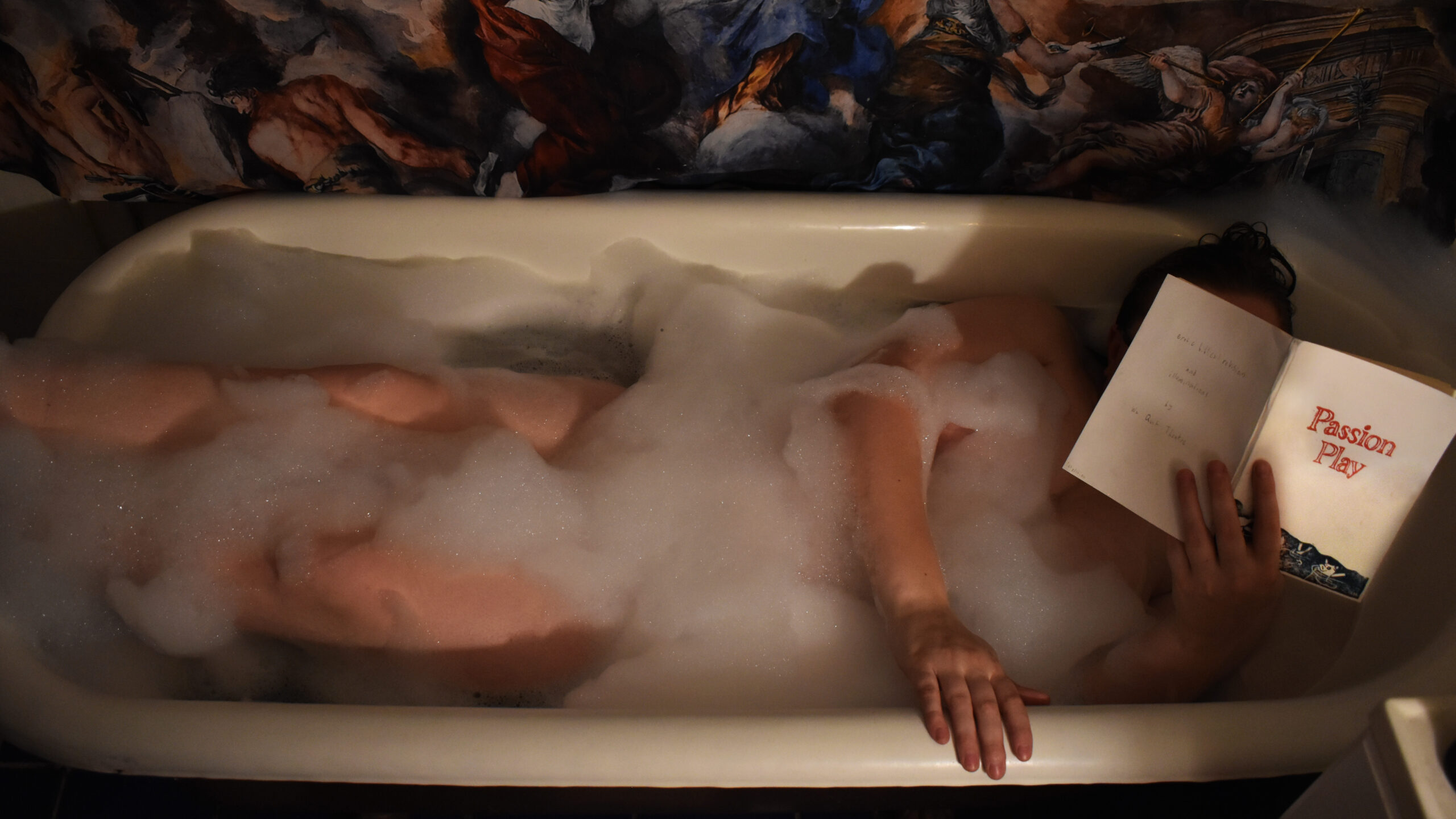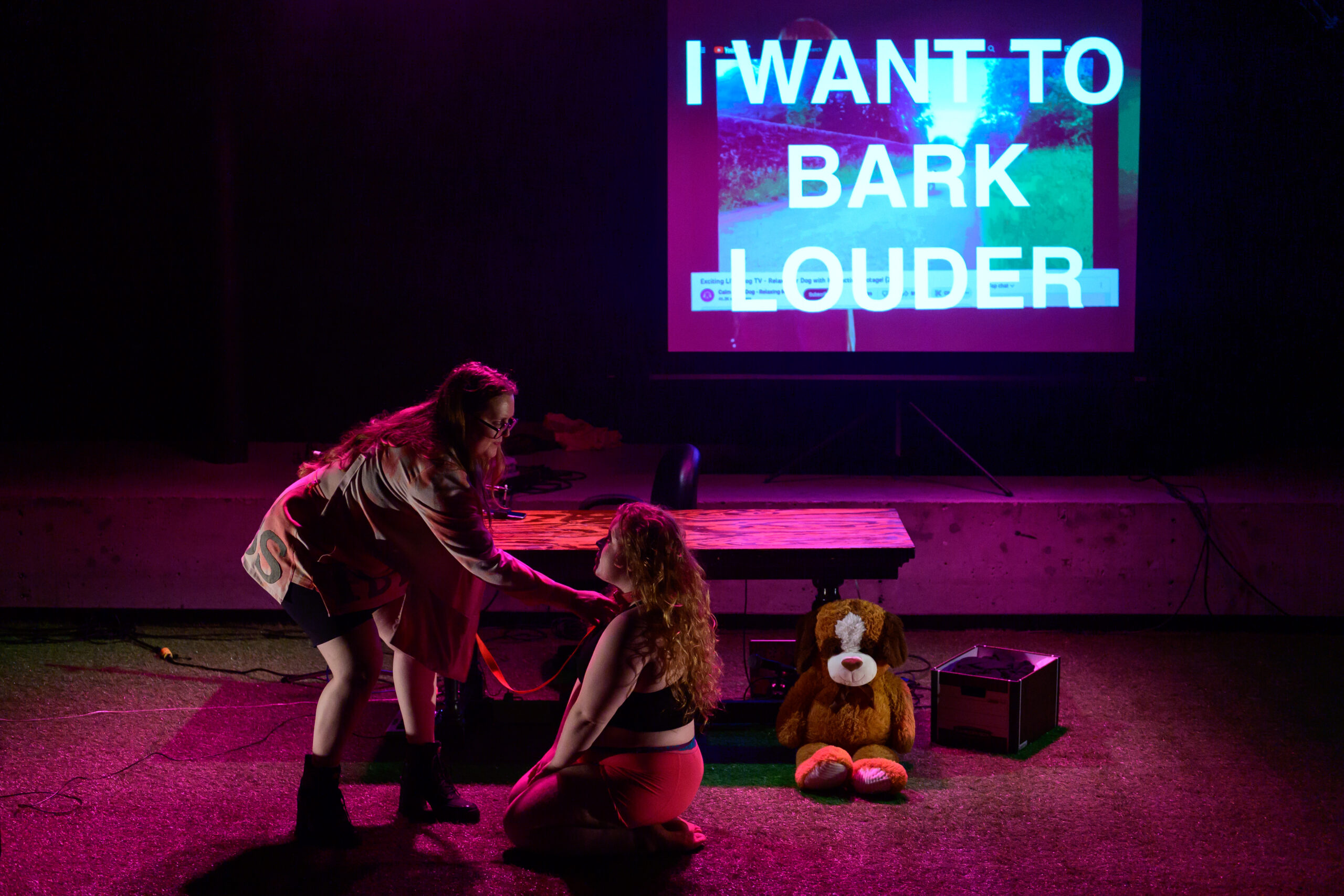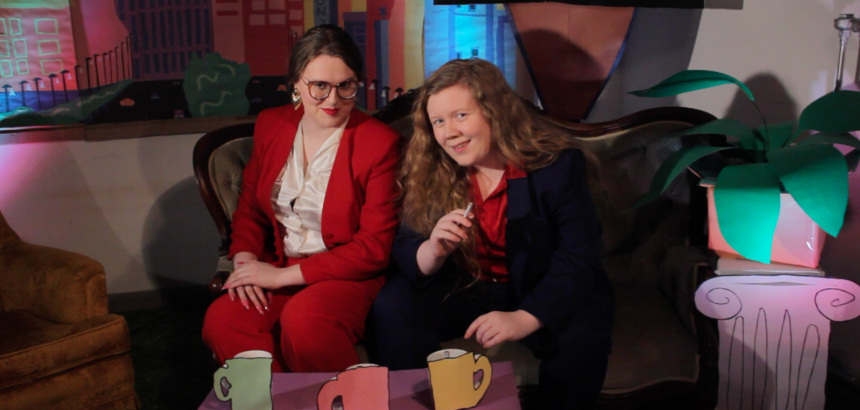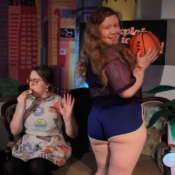Content warnings: suicide, ableism & MAiD
The first time Dasha and I worked together, for reasons I can’t or don’t care to remember, I was suicidal. Walking through downtown to my office job I would squint up at the roofs of high rises, idly searching for the best building to jump off, the one with the nicest view, the most easily accessible roof, the most private spot to land. In an attempt to counter all the compelling reasons to Not Do It I engaged in subtle self sabotage- I was professionally lazy, I spent money recklessly, I ignored my friends and loved ones. When I showed up to the rehearsal hall with three pages on suicidality I expected discomfort, awkwardness, maybe pity, but instead Dasha listened to me read and told me she thought I could do better, that I hadn’t gone deep enough, that I needed to rethink the form. This was a discipline and kindness I had never encountered in a theatrical process before; that shock and taboo are not substitutes for rigor, that confession and ‘radical vulnerability’ are not substitutes for insight. Working with Dasha has taught me that anything frightening or embarrassing or personally costly is worth doing well.

Is suicide political? Talking about suicide in the wrong way to the wrong person can lead to forcible incarceration in a psychiatric institution. Talking about suicide on social media can trigger an algorithm that alerts local police to the location of your cell phone for a ‘wellness check’. I once heard an artist say that suicide is taboo because it is a threat to remove oneself from the economy. To make oneself valueless as a worker and a consumer. Is suicide a market force? The introduction of the Canada Emergency Response Benefit in 2020 was followed by a 17.5% drop in suicide rates. As the introduction of MAiD coincides with the defunding and collapse of public healthcare, maybe what makes suicide taboo is not the presence of death, but the presence of choice. You are permitted to remove yourself from the market only when the market has “decided against” you (Union for the Useless, Laura Daisy Cowley). The taboo of suicide is easily dismissed in the face of the greater taboo of communal care, of keeping each other alive.
Writing about suicide was a way around the stickiness of taboo and the risk of criminalized speech. Dasha pushed me away from a kind of writing that creates distance, relying on spectacle and difference. Instead of being confronting and alienating, writing about suicide became a release, a catharsis, a way to engage with a desire without actually doing it.
In 2019 I read an early version of i am your spaniel for a tiny audience of friends, family, and colleagues. This reading was my first social expression of a desire for transition. For the big finale I collaged together videos of Sam Rockwell dancing and mimicked his moves before leaving the stage and playing a video of a male actor reading a script I’d given him: “My name is Gislina Patterson. I’m a virgo sun, aries moon, libra rising. I’m a bad writer but I’m very good at sex. I dropped out of high school. I never brush my teeth.” Despite knowing exactly what I wanted and how to get it, it would be almost two years before I called my doctor and asked for a testosterone prescription. This is the other side of writing as catharsis: the way I wrote about transition gave me a way out, a release, a way to engage with a desire without actually doing it.
That version of i am your spaniel ended with an ecstatic revolutionary fantasy: free housing for all, pharmacy doors blown open, every prison demolished, every cop [REDACTED]. This too was cathartic. It foreclosed on the possibility of real action by framing it as hypothetical, metaphorical, fantastical. It dispelled actionable energy and avoided any untidy, unprofessional civil disobedience by, as they say, leaving it all on the stage.

Writing a play about suicide is not the same as killing yourself. Writing a play about changing your gender is not the same as transitioning. Writing a play about the revolution is not the same as [REDACTED]. I do not believe a performance is any more than, at best, a repetition, a representation, a rehearsal of a thought, a feeling, an action. It is not (thank god / oh fuck) the big finale. This reframing of what art can and cannot do is central to what We Quit Theatre attempts: to refuse the political foreclosure at the heart of accepted theatrical practices, to invent a language of performance beyond (stage)craft, to discern when to quit our fantasies and when to start living them.
In Notes on Craft: Writing in the Hour of Genocide, writer and performance artist Fargo Nissim Tbakhi says:
“Craft is the process by which our own real liberatory tools are dulled, confiscated, and replaced. We believe our words sharper than they turn out to be. We play with toy hammers and think we can break down concrete.”
and
“Craft is a machine to elide and foreclose political thought. This must be our constant betrayal, to know now that the lyric is not as valuable as the polemic. That the sonnet must give way to the photocopied and wheatpasted list of companies and individuals with financial ties to the genocide. That political thought is not only an option for artists but a duty, an obligation and a fundamental necessity. That it supersedes the line break, the marginalia, the invocation of the muse. Better to know what we’re saying and why, and to say it with force, like a stone hurled from the river that reaches the sea.”
We can do better. We haven’t gone deep enough. We need to rethink the form. See you at the rehearsal.
_________________________________________________________________________________________________________
Join us at Buddies for a week of performances by We Quit Theatre and friends. Rituals for the discontented, diversions for the disenchanted, and a carnival for quitters! A conversation between trans best friends and lovers, and a sharing of the shit they made, together and apart, in their basement apartments.
January 16 + 17 // 805-4821
January 18 + 19 // i am your spaniel, or, a Midsummer Night’s Dream by William Shakespeare by Gislina Patterson
January 20 + 21 // Passion Play


